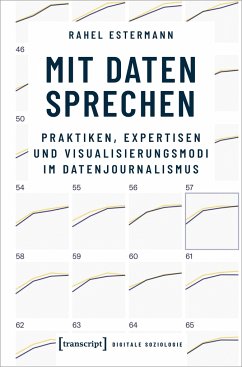
Voice Assistants in Private Homes
Media, Data and Language in Interaction and Discourse
Herausgegeben: Habscheid, Stephan; Hector, Tim; Hoffmann, Dagmar; Waldecker, David;Mitarbeit: Arndt, Maria
Versandkostenfrei!
Sofort lieferbar
30,99 €
inkl. MwSt.

PAYBACK Punkte
15 °P sammeln!
Voice Assistants such as Amazon's Alexa populate private homes as well as smartphones, TVs and cars. While suggesting easy living with smart devices, these assistants are criticized as the next step of corporate and state surveillance of the private home, or as harbingers of new and simplified linguistic practices. The contributors to this volume focus on the transformation and persistence of everyday linguistic, media and data practices under platformized conditions and new interfaces. This collection thus brings together perspectives from media sociology, media studies, media linguistics and...
Voice Assistants such as Amazon's Alexa populate private homes as well as smartphones, TVs and cars. While suggesting easy living with smart devices, these assistants are criticized as the next step of corporate and state surveillance of the private home, or as harbingers of new and simplified linguistic practices. The contributors to this volume focus on the transformation and persistence of everyday linguistic, media and data practices under platformized conditions and new interfaces. This collection thus brings together perspectives from media sociology, media studies, media linguistics and domestication research.












